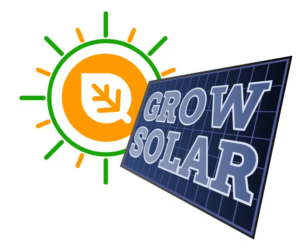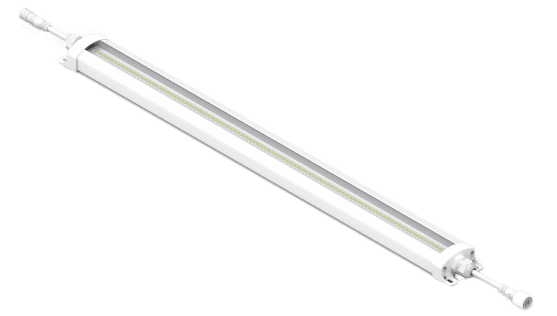Grow Solar Powered Indoor LED Grow Lights

LED grow lighting has had several significant advancements over the past few years and expanded into a variety of improved LED lighting solutions. The problem is that many terms are used to market the lights which tend to confuse the buyers and growers. BizReps is pleased to announce the Grow Solar Lights a broad-spectrum LED lighting system that provides an optimal solution for indoor growing. Our advanced LED lights mimic natural light and offer the desired amounts of light for indoor gardens and grow rooms.
LED grow lighting isn’t new and has been around for many years. A big problem with LED Lights was that many levels of quality lights were sold to market the lights to growers. There was no standard and many on the market didn’t provide a real solution to the growers.
BizReps CA is pleased to announce our line of Grow Solar broad-spectrum LED lights that provides an optimal solution for indoor growing, especially for cannabis plants. These lights mimic natural light and offer the desired amounts of light for indoor gardens and grow rooms.
Plants need more than just any light source to help produce healthy bountiful crops. Photo synthesis relies on light intensity and particular light wave lengths to activate and encourage enzymes in the plant to grow, flower and bud. It is critical that the light have enough intensity to penetrate the canopy of the plant and cover as much surface area for the plant to receive.
Grow Solar LED Advantages
Grow Solar Lights are the result of our work with advanced LED Lighting engineers and manufacturers to create a leading edge solar powered light specifically designed for the emerging indoor horticulture space. The technology used has received a patent for how to create ideal spectrums for multiple crop types. Our systems are purpose-built fixtures that serve cultivators in numerous markets. These advanced broad spectrum grow lights help indoor growers reduce their power consumption and increase their growth yields and profitability.
Features and Advantages Include:
- Industry Leading Performance
- High Uniformity
- Patented spectrum
- Natural white light
- Controls compatible/Dim to Off
- Made in the USA
Grow Solar Light Products
Here is the complete line of our broad-spectrum grow lights. All available to connect with our FUSION solar application. Ask us about growing with solar power.

CT141 600W Grow Light
- Replaces a 1,000W DE 1:1.
- Patented spectrum.
- Natural white light.
- Tunable spectrum.
- Suitable for CEA use with all crops.
- Ideally suited for GH supplemental applications.
- Powder coated aluminum housing.
- Made in the USA.
- Ships with a 10’ cord, NEMA

CTB6 660W Grow Light
- No UV or IR in the beam
- Patented spectrum
- Input Voltage = 120-277V
- Tunable spectrum
- Suitable for CEA use with all crops
- Custom dimming settings, with boost
- Ideally suited for full, bloom, and veg spectrum applications
- Aluminum housing
- Easy installation and operation
- Ships with a 10’ cord, NEMA 6-15P plug, and 5-15P adaptor

CBT-300 300W Grow Light Bloom
- Natural white light
- Suitable for CEA use with all crops
- Controls compatible/Dim to Off
- Ideally suited for bloom applications
- Powder coated aluminum housing
- Made in the USA
- Easy installation and operation
- Ships with a 10’ cord, NEMA 6-15P plug, and 5-15P adaptor

CBT-600 600W Grow Light
- High Uniformity
- Patented Spectrum
- Natural white light with ultraviolet
- Controls compatible / spectrum tunable
- Ideally suited for commercial grows
- Powder coated aluminum housing
- Made in the USA
- Easy installation and operation
- Ships with a 10’ cord, NEMA 6-15P plug, and 5-15P adaptor

CTC-100 100W Grow Light Veg/Clone
- High Uniformity
- Patented Spectrum
- Natural white light
- Suitable for CEA use with all crops
- Controls compatible/Dim to Off
- Ideally suited for veg and clone applications
- Powder coated aluminum housing
- Made in the USA
- Easy installation and operation
- Ships with a 10’ cord, NEMA 6-15P plug, and 5-15P adaptor

CTV-185 200W Grow Light Veg
- Standard 1X4 footprint
- Patented spectrum
- Natural white light
- Suitable for CEA use with all crops
- Controls compatible, 0%-100%
- Ideally suited for veg applications
- Architectural white powder coated aluminum housing
- Made in the USA
- Easy installation and operation
- Ships with a 10’ cord, NEMA 6-15P plug, and 5-15P adaptor

IP65 Vertical Farming Light
- Housing: polycarbonate, impact resistant, Ik05
- Lamp Cover: polycarbonate with integrated LED unit
- Seals: Age-resistant silicone seals
- Chip: LUMIEDS high power LED, integrated LED converter
- Installation: Suitable for ceilings, walls and pendant mounting
- Application: Vertical Farm, Greenhouse Supplemental
Broad Spectrum vs Standard LED Lights

Broad Spectrum vs Full Spectrum LED Lights

The truth is that the term “full-spectrum” is more marketing than science. Full spectrum led grow lights are the idea that the light source includes visible and invisible wavelengths including UV and IR. In reality LED doesn’t have the capability of generating these wavelengths. Our broad-spectrum LED lights do provide optimal PAR, PPF, and PPFD characteristics that have been proven to increase growth, in fact our system is patented. Look at the actual numbers and you will see that our broad-spectrum lights outperform the so-called full spectrum units every time.
Understanding Grow Light Terminology
To help explain the importance of grow lights and what elements impact growing we have created a list of important terms and concepts to help you understand which LED are best for horticultural lighting.

Photosynthetically Active Radiation (PAR)
This is the light that plants use to drive photosynthesis and is typically measured from 400-700nm. Note that the human eye has a significantly narrower sensitivity than crop plants. Note that the full spectrum of PAR is used by plants, this is called McCree’s Action Spectrum Note that any photons outside of these wavelengths do not count toward PAR, but may be useful.

Plant Biologically Active Radiation Flux (PBAR)
Plants have photopigments other than chlorophyll that are sensitive to a wider range of wavelengths 350-800nm.
Photosynthetic Photon Flux (PPF)
This is a measurement of how much PAR is produced by a lighting system each second. This is measured in an integrating sphere and expressed in μmol/s.
Photosynthetic Photon Flux Density (PPFD)
This is a measurement of how many photos in the PAR range fall on your canopy per second. This is measured in μmol/m2/s.
Photon Efficiency
This is the measurement of how efficiently a system converts electrical energy into photons that fall in the PAR range. This is expressed in μmol/J or often μmol/W.
- μmol is a micromole is 10-6 moles, a quantum of energy used to define how many photons in the PAR range are falling on the target surface. 1 mole of light is roughly 6×1023 photons
- Joule is a standard unit of work, most often expressed in lighting at “Watts”
Day Light Integral (DLI)
DLI measures the number of photosynthetically active photons (photons in the PAR range) accumulated in a square meter over the course of a day. This is expressed in moles of light (mol) per square meter (10.76 square feet) per day. It is the sum of the per second PPF measurements during a 24-hour period.
Photosynthesis
A process used by plants and other organisms to convert light energy into chemical energy that can later be released to fuel the organisms’ activities.
Chlorophyll
Chlorophyll is essential in photosynthesis, allowing plants to absorb energy from light. They absorb light most strongly inthe blue portion of the spectrum, followed by red. There are two types of chlorophyll, A and B

Peak Wavelengths for Chlorophyll A & B
Basic Plant Biology

Carotenoids
Carotenoids serve two key roles in plants and algae: they absorb light energy for use in photosynthesis, and they protect chlorophyll from photo-damage – they are derivatives of tetraterpenes.

Photoperiodism
Many flowering plants use a photoreceptor protein, such as phytochrome to sense seasonal changes in night length, or photoperiod, which they take as signals to flower. Obligate photoperiodic plants absolutely require a long or short enough night before flowering.

Wavelengths that Drive Photoperiod
Note that many phytochrome activation wavelengths fall outside of PAR. That’s why PBAR is so important to consider.
